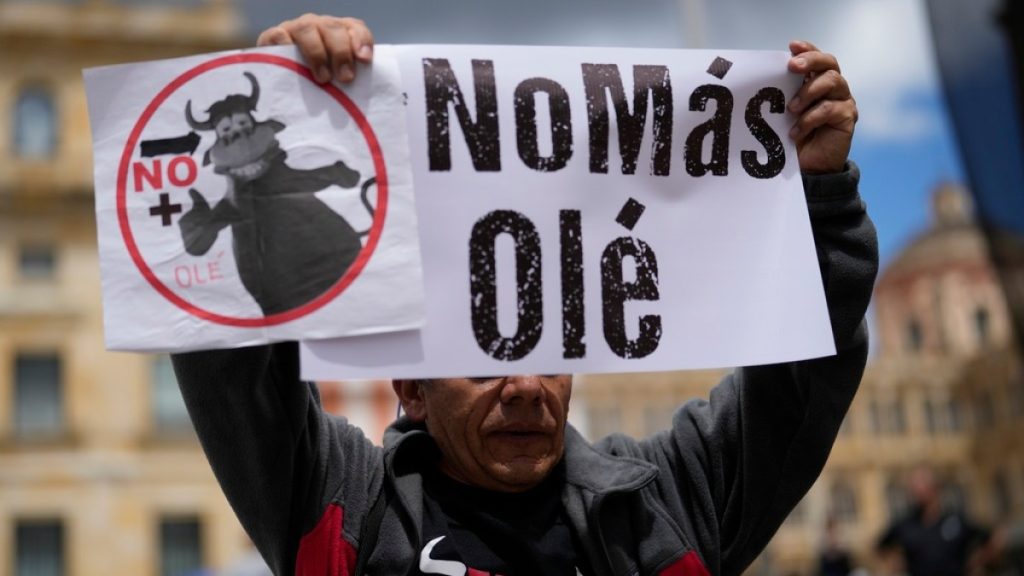The tradition of bullfighting, once a popular event in Colombia, has been losing spectators in recent years due to increasing concerns about animal welfare. After years of political battles, Colombia’s Congress passed legislation banning bullfighting with a vote of 93-2 on Tuesday. The ban will be phased in over a three-year period, during which alternative employment options will be explored for the tens of thousands of people who rely on the industry.
Lawmaker Juan Carlos Losada stated that the ban would allow Colombia to move away from the “culture of violence” inherited from Spanish colonizers. He believes that future generations should grow up in a country where culture is defined more creatively than through the mistreatment of animals for the pleasure of a few individuals. However, bullfighting aficionados view the ban as an attack on minority freedoms and a loss for cities that attract thousands of visitors for these events.
Bullfighting was a centuries-old colonial tradition in Colombia that was often broadcast live on television networks. The practice has faced increasing criticism as societal views on animal welfare have evolved, with many finding it unacceptable to watch animals suffer for entertainment. While Colombia’s Constitutional Court recognized bullfighting as a cultural tradition in 2018, several cities have since implemented restrictions, such as Bogota banning the injuring or killing of bulls and Medellin imposing limitations on the sport.
Despite these changes, bullfighting still remains popular in cities like Cali and Manizales in Colombia, with approximately 300 events held annually at 70 different locations. The practice originated in the Iberian Peninsula and remains legal in seven other countries, including Ecuador, France, Mexico, Peru, Portugal, Spain, and Venezuela. In contrast, several countries in the region, such as Brazil, Chile, Argentina, Uruguay, and Guatemala, have already banned bullfighting due to concerns about animal welfare.
Advocates for the ban on bullfighting believe that it is a positive step towards a more humane society that values animals’ well-being over entertainment. They argue that the ban will lead to a reevaluation of Colombia’s culture and encourage a shift towards more creative forms of cultural expression. However, supporters of bullfighting see the ban as an infringement on their rights as a minority group and worry about the economic impact on cities that rely on these events for tourism.
Overall, the ban on bullfighting in Colombia marks a significant moment in the country’s cultural evolution, reflecting changing attitudes towards animal welfare and the importance of ethical treatment of animals in entertainment industries. While the decision may be met with resistance from some sectors of society, it represents a step towards a more compassionate and thoughtful approach to cultural traditions.


